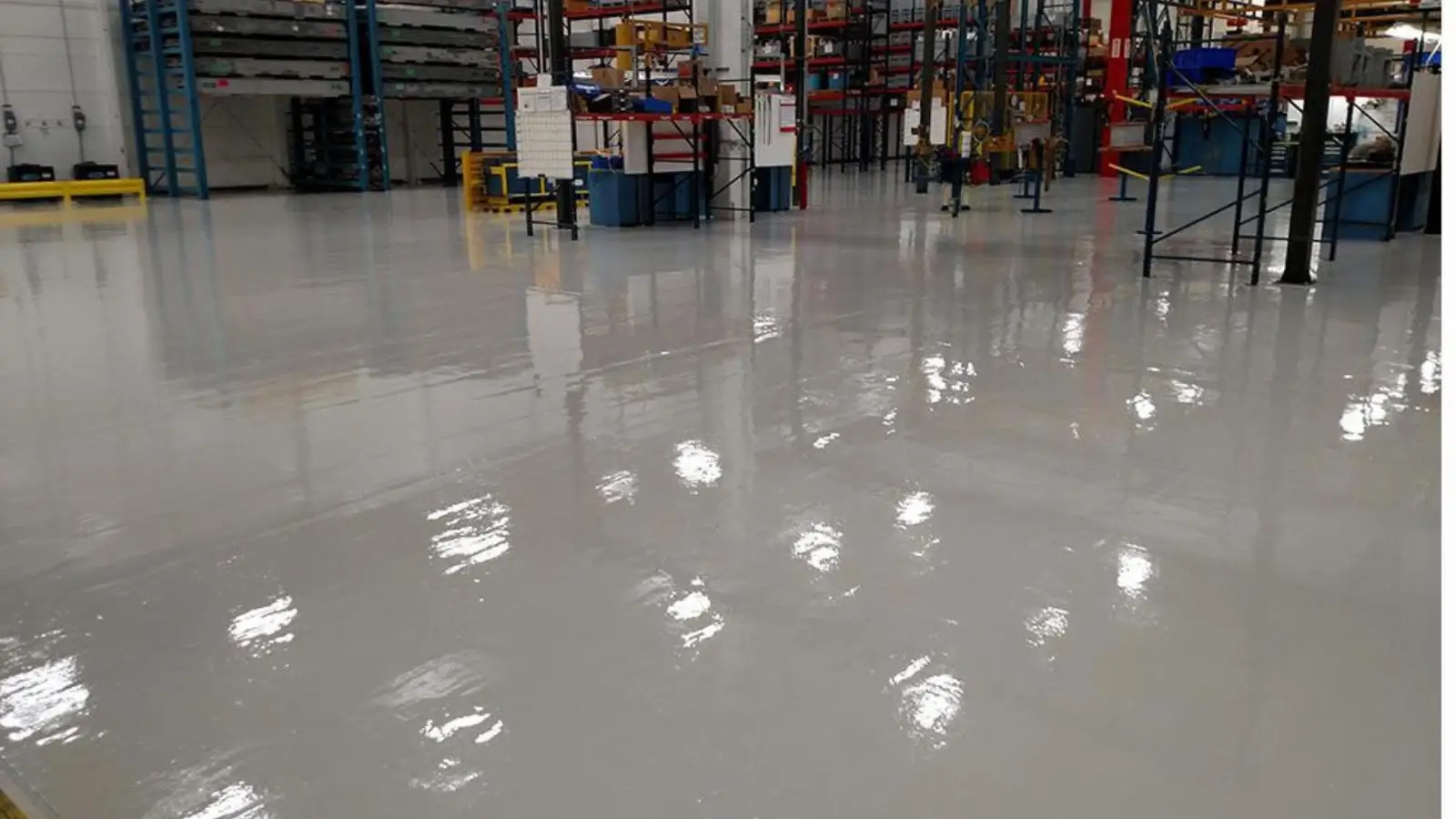


When you're managing a facility that demands both durability and hygiene, flooring isn't just a surface—it's a critical infrastructure decision. While traditional epoxy coatings and concrete sealers have dominated the market for years, urethane cement flooring has emerged as the superior choice for environments where failure simply isn't an option.
If you're evaluating flooring systems for food processing plants, pharmaceutical facilities, commercial kitchens, or manufacturing spaces, understanding what sets urethane cement apart could save you significant time, money, and operational headaches down the line.
Urethane cement flooring combines the flexibility of urethane with the strength of cement, creating a hybrid system that outperforms conventional options in several key areas. Unlike standard epoxy floors that can crack under thermal shock or degrade when exposed to harsh chemicals, urethane cement maintains its integrity even under the most demanding conditions.
The secret lies in its composition. This flooring system bonds directly to concrete substrates, creating a monolithic surface that can withstand extreme temperatures, heavy loads, and aggressive cleaning protocols without compromising performance.
One of the most significant advantages of urethane cement flooring is its ability to handle rapid temperature fluctuations. Facilities that regularly transition between hot and cold zones—such as food processing plants with steam cleaning protocols or cold storage areas—need flooring that won't crack or delaminate.
Traditional epoxy systems often fail under these conditions. The rigid nature of epoxy makes it susceptible to thermal cycling damage, leading to costly repairs and potential contamination risks. Urethane cement, however, can handle temperature swings from -40°F to 250°F without losing structural integrity.
This resilience translates directly to reduced maintenance costs and extended floor life. When your operations can't afford downtime for floor repairs, this kind of reliability becomes invaluable.
Facilities dealing with acids, caustics, oils, and other aggressive substances need flooring that won't deteriorate over time. Urethane cement flooring offers exceptional chemical resistance across a broad spectrum of contaminants, making it ideal for environments where spills and exposure are routine.
Whether you're managing a brewery, a pharmaceutical manufacturing facility, or an automotive plant, the chemical resilience of urethane cement ensures your floors remain intact and safe. This durability also means you can use stronger cleaning agents without worrying about floor degradation—a crucial factor for facilities with strict sanitation requirements.
Safety isn't negotiable in high-traffic industrial environments. Urethane cement flooring can be finished with varying degrees of texture to provide optimal slip resistance, even when wet. This feature is particularly important in food processing facilities, commercial kitchens, and areas where water or other liquids are frequently present.
The textured finish doesn't just improve traction—it also helps with drainage. Properly installed urethane cement floors can be sloped to direct liquids toward drains, preventing pooling and reducing slip hazards. This combination of texture and proper drainage design creates a safer working environment while maintaining easy cleanability.
When it comes to installing urethane cement flooring systems, expertise matters. EvrStep Seamless Coatings specializes in delivering high-performance flooring solutions tailored to the specific demands of your facility. Their team understands that every operation has unique requirements, and they work closely with clients to design and install systems that address those needs.
What sets EvrStep apart is its commitment to proper surface preparation and installation protocols. Urethane cement flooring is only as good as its installation, and shortcuts during prep work can compromise the entire system. EvrStep's thorough approach ensures proper adhesion, correct thickness, and appropriate finish texture—all factors that determine long-term performance.
Their experience spans diverse industries, from food and beverage to pharmaceutical manufacturing, giving them insight into the specific challenges different facilities face. This knowledge translates into flooring solutions that don't just meet specifications—they exceed operational expectations.
While urethane cement flooring systems typically require a higher initial investment compared to basic epoxy coatings, the total cost of ownership tells a different story. When you factor in longevity, maintenance requirements, and downtime for repairs, urethane cement often proves more economical over the floor's lifecycle.
Standard epoxy floors in demanding environments might need replacement or significant repairs within 5-10 years. Properly installed urethane cement systems, however, can last 15-20 years or more with minimal maintenance. This extended service life reduces the frequency of disruptive floor replacement projects and the associated operational interruptions.
Additionally, the superior chemical and thermal resistance means you'll spend less on repairs from damage caused by spills, temperature cycling, or aggressive cleaning. These savings compound over time, making urethane cement flooring a sound financial decision for facility managers focused on long-term value.
Installing urethane cement flooring isn't a DIY project. The material's fast cure time and specific application requirements demand experienced professionals who understand the nuances of the system. Proper substrate preparation is critical—any contamination, moisture issues, or structural defects must be addressed before installation begins.
The installation process typically involves grinding or shot-blasting the existing concrete to create a clean, profiled surface. Base coats are then applied, followed by the urethane cement layer and any desired topcoats or sealers. Depending on the system design, antimicrobial additives can be incorporated for facilities requiring additional hygiene measures.
Cure times are relatively fast compared to other industrial flooring systems, but proper curing is essential for achieving specified performance characteristics. Working with experienced installers like EvrStep Seamless Coatings ensures the system is properly applied and fully cured before the floor is returned to service.
While urethane cement flooring is widely recognized in the food and beverage industry, its benefits extend to numerous other applications. Pharmaceutical manufacturing facilities value their cleanability and resistance to harsh sanitizing agents. Chemical processing plants appreciate their ability to withstand aggressive substances without degrading.
Automotive facilities, breweries, dairies, and cold storage warehouses all benefit from urethane cement's unique combination of durability, thermal resistance, and ease of maintenance. Even high-end commercial kitchens and retail food preparation areas are increasingly choosing urethane cement for its performance and longevity.
The versatility of urethane cement flooring makes it suitable for nearly any environment where durability, hygiene, and reliability are priorities. If your facility faces challenging conditions that regularly damage conventional flooring, urethane cement deserves serious consideration.
Urethane cement flooring offers a high-performance solution for facilities with demanding operational needs. While it represents a premium investment, its exceptional durability, chemical resistance, and longevity make it ideal for environments where floor failure can have serious consequences, providing unmatched protection and value over time.
Consider factors like temperature exposure, chemical contact, cleaning protocols, traffic patterns, and required service life when evaluating options. Consulting with experienced flooring professionals who understand your industry's unique challenges can help you make an informed decision that serves your operation for years to come.
EvrStep Seamless Coatings offers expert consultation and assessment services to help facility managers determine whether urethane cement flooring is the right fit for their specific situation. Their team can evaluate your current flooring conditions, discuss your operational requirements, and design a system that addresses your facility's unique challenges.
Don't let inadequate flooring compromise your operations. Explore how urethane cement flooring from EvrStep can provide the durability, safety, and performance your facility demands.